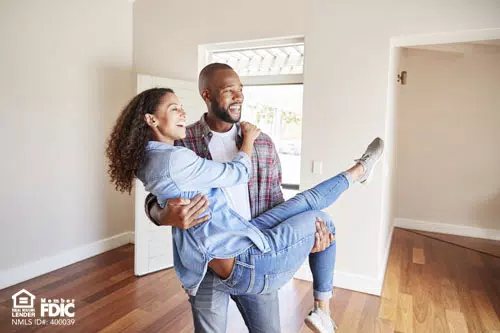Buying a house is full of twists and turns that you might not be prepared for, especially as a first-time home buyer. Preparing for everything a home purchase entails is essential before you start looking. Financial decisions should be made with care, especially as purchasing a home is usually the most significant investment decision a person makes in their lifetime. Here are seven tips for first-time home buyers that will make the process of buying a home easier:
Get a Copy of Your Credit Report
Since your credit history affects the type of loan and interest rates you qualify for, you should start by getting a copy of your credit report. You can receive a free credit report once a year from one of the credit bureau reporting agencies: Experian, TransUnion, or Equifax. Go to annualcreditreport.com to get yours.
Any errors you find should be reported to the credit bureau agency immediately. You should also avoid opening up new credit cards or other credit accounts until after closing a home, as these can affect your credit.
Pay Off Debt
There are two reasons to pay off or at least pay down as much debt as possible before buying a home. Lenders and government agencies that might back your home loan look at your debt-to-income ratio based on your debt level. Getting approved for a loan will be difficult if your DTI exceeds the maximum allowable limit.
The other reason to pay off your debt is that buying a house comes with costs you likely won't expect. Upkeep, repairs, or renovations can be expensive. If you're debt-free, you'll be able to handle these expenses without resorting to costly options like taking out another loan. It's good financial practice to keep an emergency fund of three to six months of expenses in case of an event such as a job loss.
Create a Savings Plan for Your Down Payment
Nowadays, you can buy a house without a 20% down payment. But you'll likely need to pay a monthly premium for mortgage insurance as a trade-off. Look at down payment calculators on the internet and determine how much you want to save for a down payment and the estimated price of the homes.
Set aside a certain monthly amount to help you reach your down payment goal, ideally as an automatic withdrawal to a savings account. Other sources of down payment help include work bonuses, commissions, or tax refunds. Practicing good saving habits will prepare you for big financial journeys like homeownership.
Other Costs to Budget
Aside from a down payment, there are other costs that you should budget for when buying a house. Closing costs for buyers can run between 2%-5% (in most cases) of the amount loaned. These costs include home inspections, title searches, and appraisals. You’ll also need to set aside some funds to pay for moving expenses, new furnishings, improvements, or appliances needed shortly after moving in.
Explore Loan Options Available to You
The type of mortgage you choose could determine the minimum down payment you need. Conventional mortgages from private lenders follow the standards set by Fannie Mae and Freddie Mac. Typically, these mortgage loans require at least 3% down.
Loans backed by the Federal Housing Administration allow you to put down as little as 3.5%. Active-duty service members, veterans, and surviving spouses of service members killed in the line of duty may qualify for a VA loan. These loans have the Department of Veterans Affairs' guarantee and allow borrowers to finance up to 100% of the home’s sale price. An FHA loan is a mortgage insured by the Federal Housing Administration (FHA), a government agency. The FHA doesn't lend the money for the loan but instead provides insurance to the lender in case the borrower defaults on the mortgage. This makes it less risky for lenders to offer loans to individuals with lower credit scores or limited financial resources.
If you are self-employed or own a business, you may struggle to qualify for a mortgage without a W2 or tax documents. However, some lenders offer non-QM loans for borrowers with exceptional circumstances. You can consider applying for a 1099 loan or bank statement loan, which allows for other ways to show your income.
Get Rate Quotes and Compare
You can save thousands of dollars on a loan by shopping around. Get multiple quotes from different lenders. Fees can also vary among lenders, so take a look at the breakdown of each quote. Some lenders allow you to buy discount points on the loan. This will enable you to secure a lower interest rate on the loan by paying interest upfront. Buying discount points might make sense if you have the money to purchase them, depending on how long you expect to live in the home.
Get Pre-approved Before House Hunting
A seller will take a buyer more seriously if they're pre-approved. Your offer is more likely to be accepted over a competing offer from a buyer who is not pre-approved. Additionally, gaining pre-approval means you will know the maximum price you can borrow before you shop for homes so that you can focus your search accordingly.
These tips will help you get into shape for buying your first home. NASB has experts who can provide more guidance and suggestions. Call us at 888-661-1982 to learn more about purchasing your first home.




